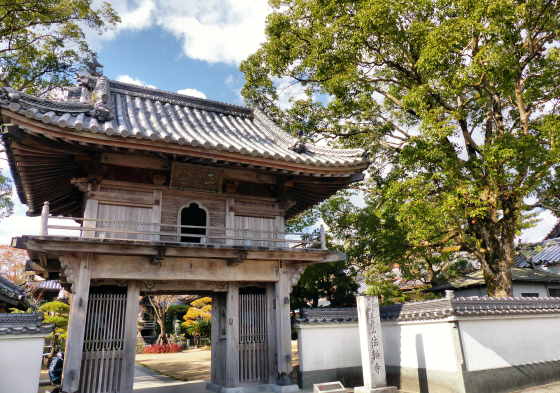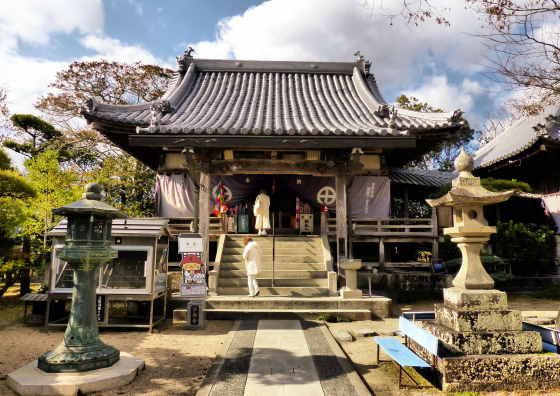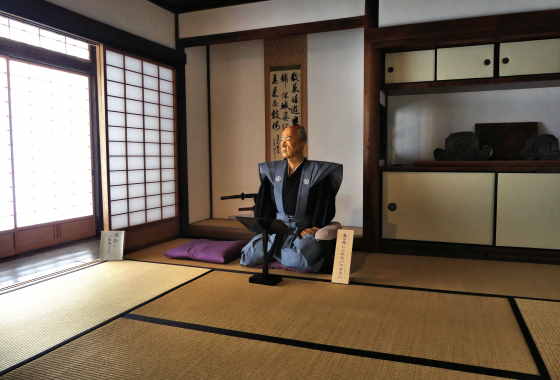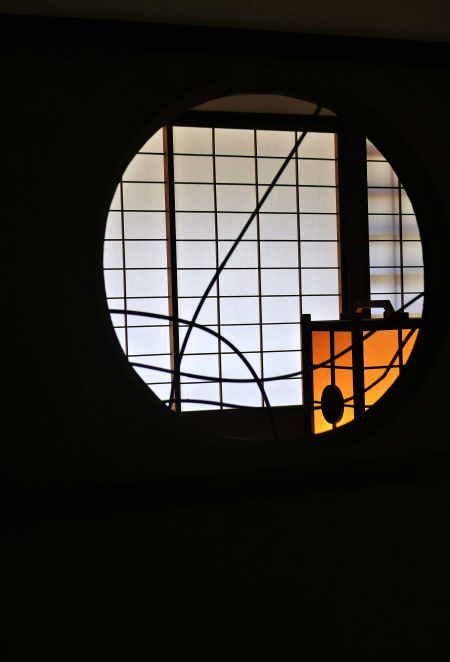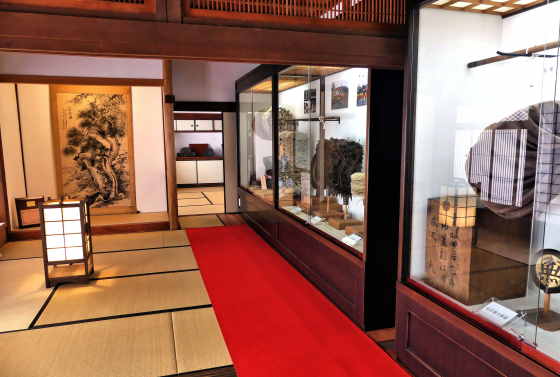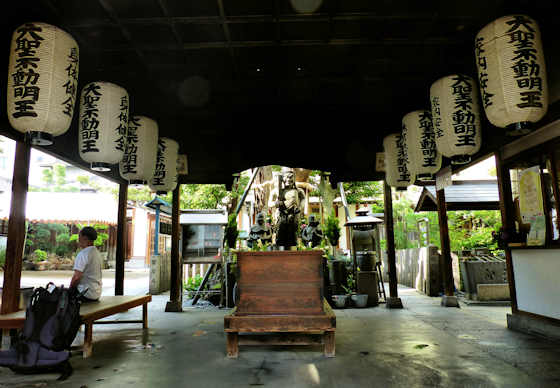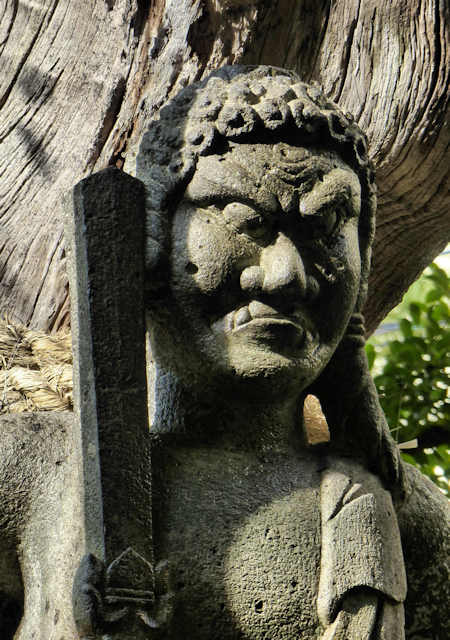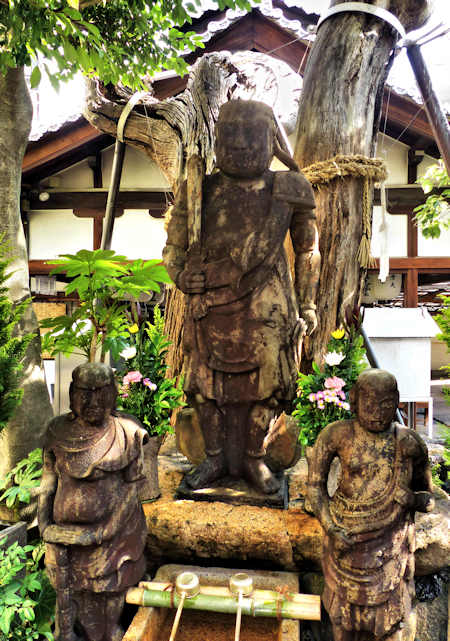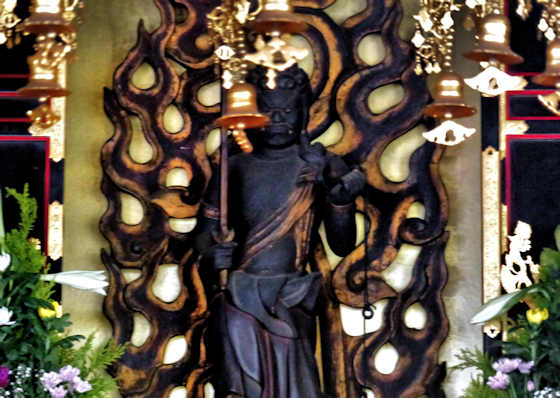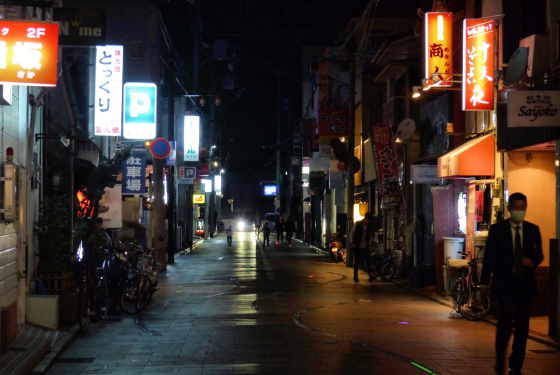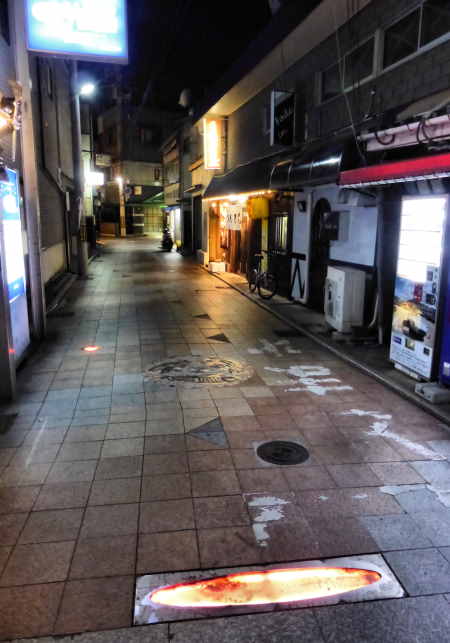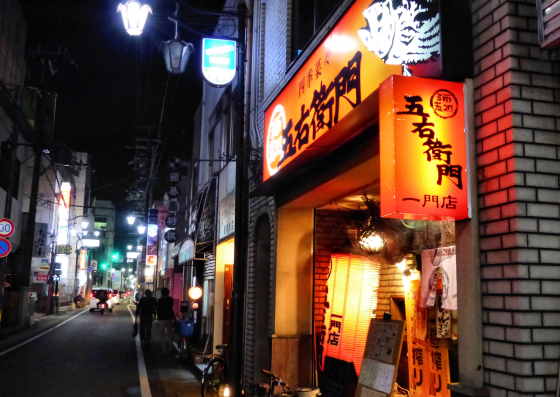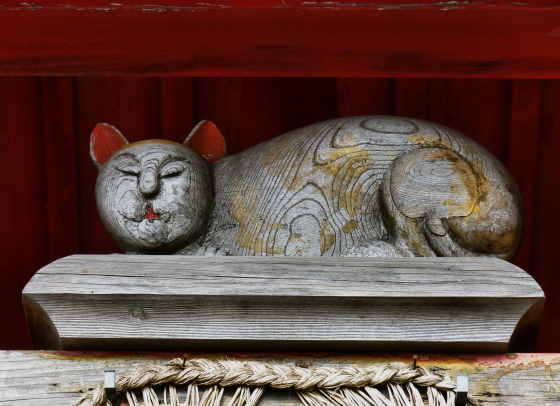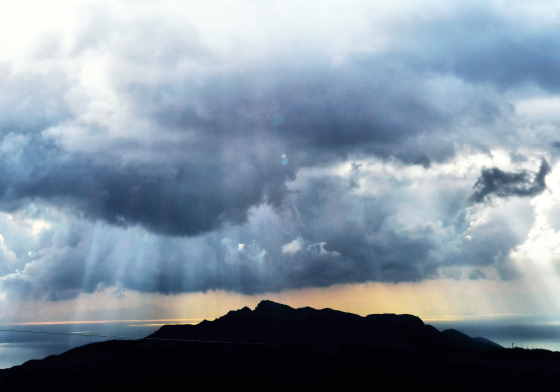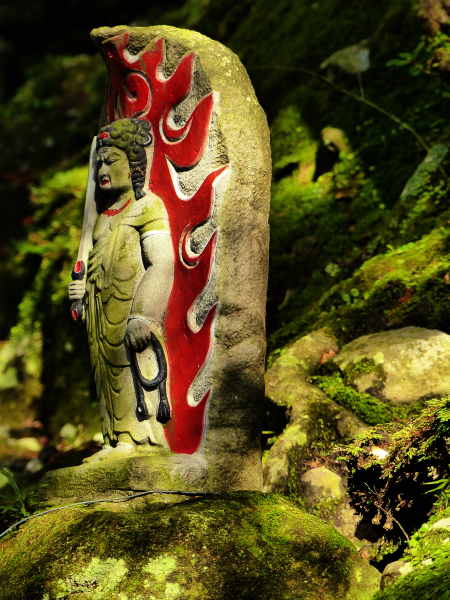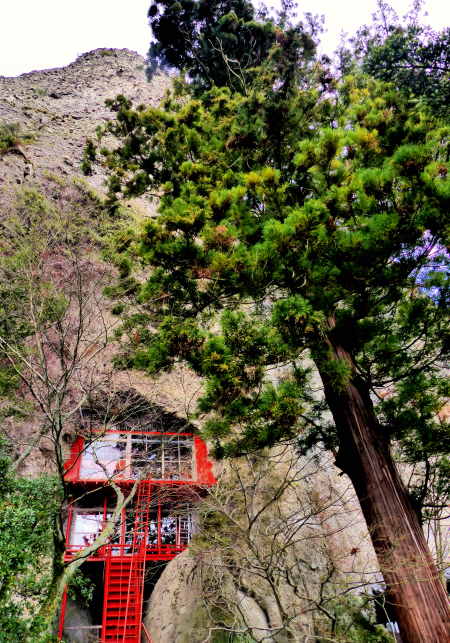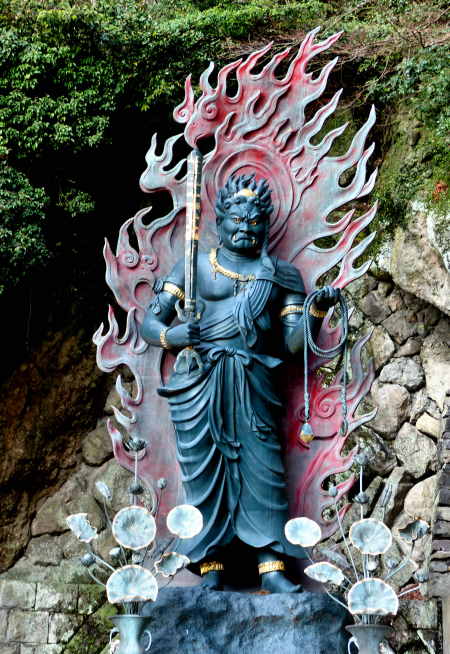Friday, June 10, 2022
Horinji Revisited
Labels:
nio,
shikoku fudo
Thursday, June 9, 2022
Izushi Samurai Mansion
Tuesday, June 7, 2022
From Kamano Beach into Yunotsu
On the way to the station I stop in at Anrakuji, a small temple with a rather nice dragon sculpted in plaster in the eaves. This kind of decoration is called kote-e, " trowel picture" and I have posted more examples.
Labels:
Japan Sea Walk,
kote-e,
yunotsu
Sunday, June 5, 2022
Raion-ji Hagio Yakushi-do, Temles 49 & 76 Sasaguri Pilgrimage
Raion-ji Hagio Yakushi-do
The Sasaguri pilgrimage is an excellent opportunity to both get a taster of what walking a pilgrimage is like, and also an excellent series of mountain walks close to the big city of Fukuoka.
Labels:
amida,
Fudo Myojin,
sasaguri,
senju kannon,
shaka nyorai,
yakushi
Thursday, June 2, 2022
Houonin Temple 5 Kinki Fudo Myoo Pilgrimage
Houonin Temple
There was also this statue of who I am fairly certain is En no Gyoja, the legendary founder of Shugendo
Labels:
en no gyoja,
Fudo Myojin,
kinkifudo,
Osaka,
temple
Monday, May 30, 2022
Ajijoji Nightlife District Tanabe
Ajijoji Nightlife District
Usually located adjacent to the main train station in Japanese cities and towns can be found "nightlife districts", focused primarily on selling alcohol, food, and female entertainment, and "companionship".
Labels:
kumano kodo,
saigoku,
tanabe,
wakayama
Saturday, May 28, 2022
Kiyotakisan Magnificent Cave Temple
Kiyotakisan Magnificent Cave Temple
It can take a while to find all the side trails that lead to overhangs and crevices where even more statues abound.
I was there at Christmas, so the red foliage had passed, but the views are worth it any time of the year.
Labels:
cave,
Fudo Myojin,
jizo,
shodo88
Subscribe to:
Posts (Atom)
